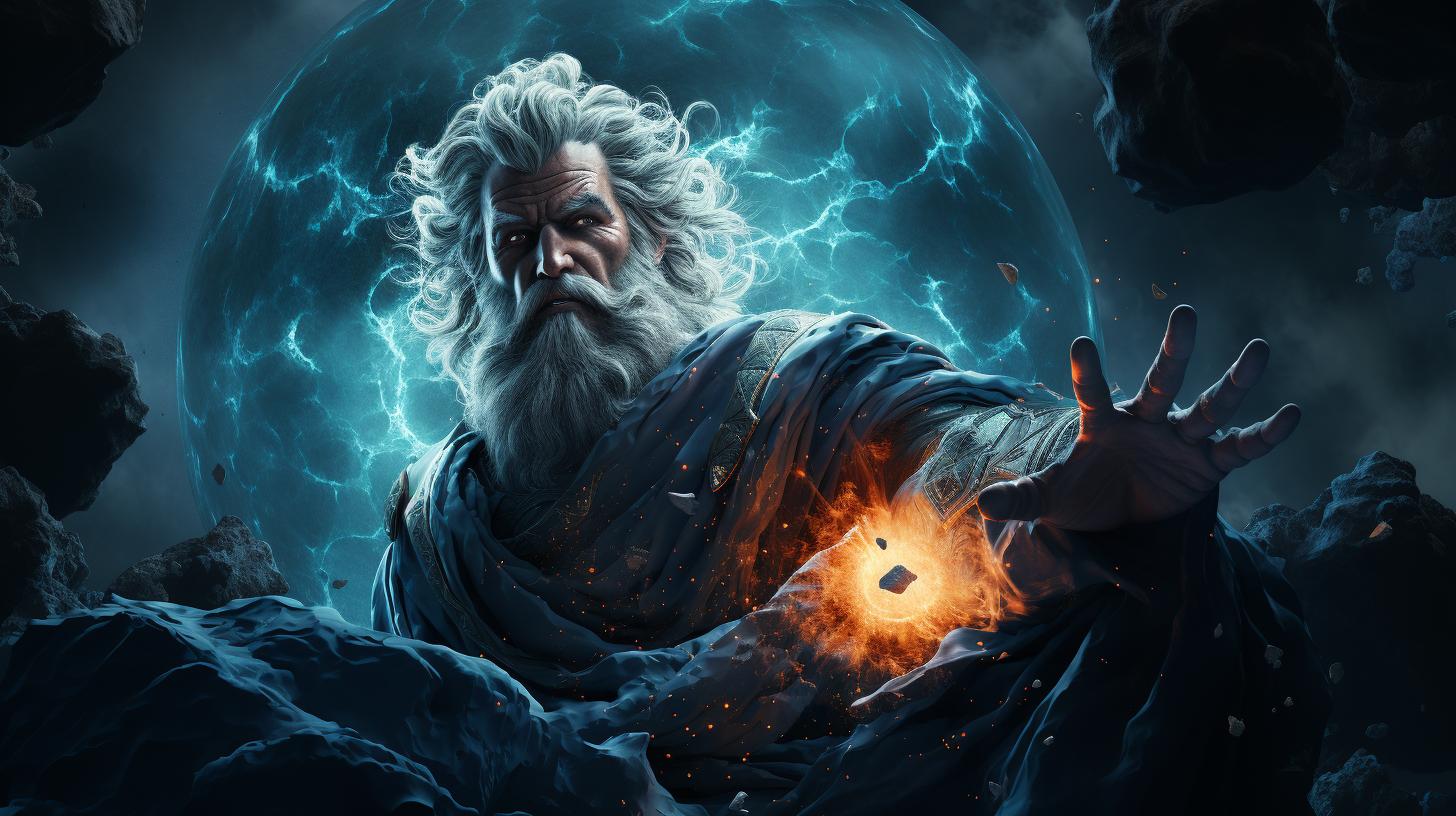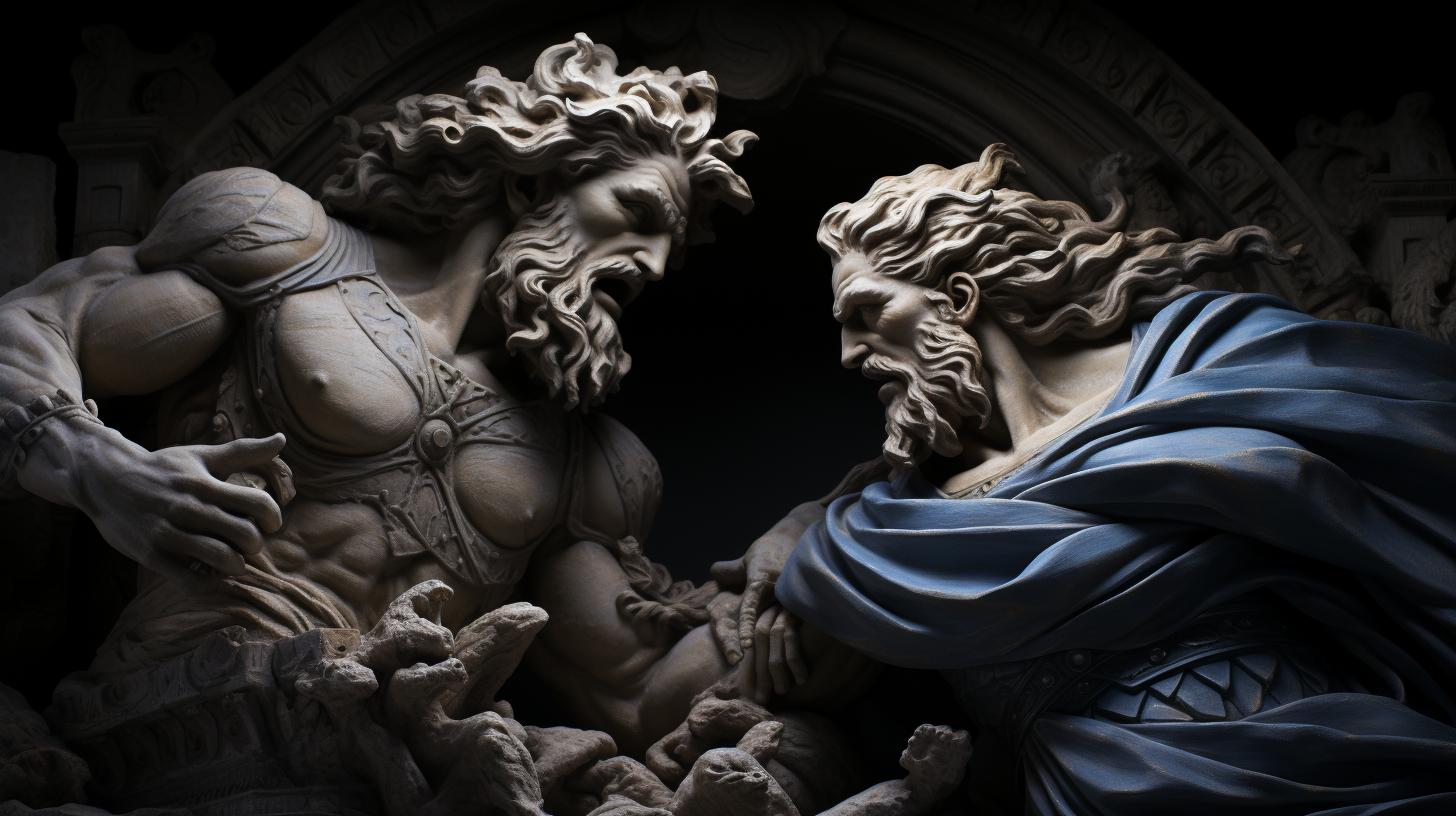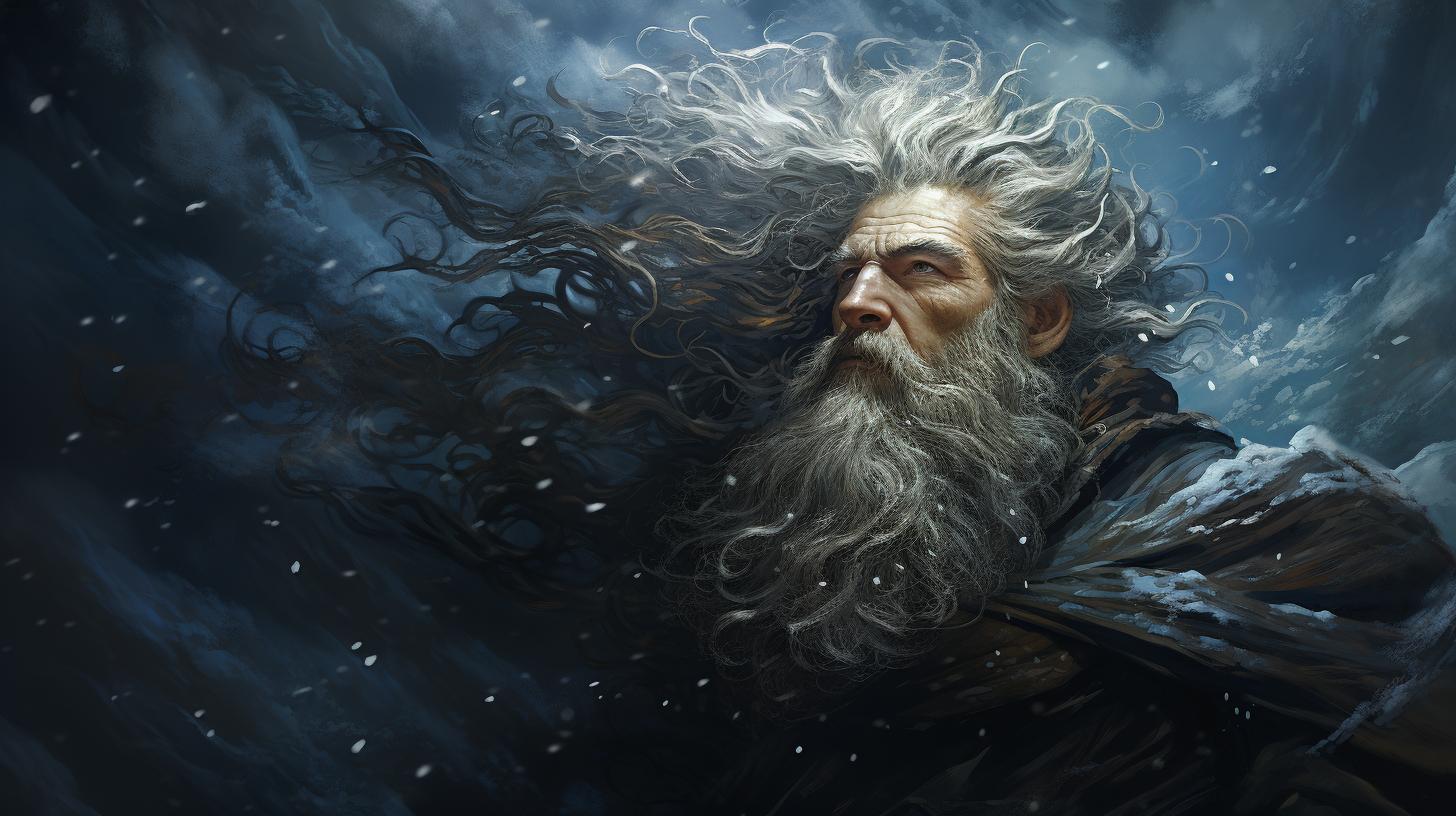Greek Goddess Aceso: Exploring the Healing Powers of Ancient Greek Mythology

Greek goddess Aceso holds significant importance in Greek mythology as a deity associated with healing and the care of wounds. As the daughter of Asclepius, the god of medicine, Aceso represents the process of healing itself.
Alongside her sisters, Panacea, Iaso, Hygeia, and Aigle, Aceso plays a vital role in the realm of healthcare and well-being. This article explores Aceso’s role, mythical origins, symbolism, and her relationship with other Greek goddesses.
Additionally, it delves into Aceso’s portrayal in classical literature, her worship, and her impact on Greek culture.
Overview of Greek Goddess Aceso
Greek goddess Aceso holds a significant role in Greek mythology, representing healing and wellness. Her existence intertwines with the intricate fabric of ancient Greek belief systems and traditions. This section explores the various aspects of Aceso’s presence, including her role and significance, mythical origins, family connections, and symbolism.
Role and Significance in Greek Mythology
Aceso plays a crucial role in Greek mythology as the divine embodiment of the healing process. Revered as a goddess associated with the restoration of health and well-being, she holds great importance in the narratives of ancient Greece.
Aceso’s domain extends beyond mere physical healing, encompassing the restoration of the mind, body, and spirit.
Mythical Origins and Family Connections
As the daughter of Asclepius, the god of medicine, Aceso bears a direct lineage that solidifies her role in the healing realm. Her mother remains unnamed in the mythological records, yet her connection to her siblings highlights her familial ties.
Aceso shares maternal heritage with her sisters Iaso, Hygeia, Aigle, and Panacea, all of whom contribute to the various facets of health and wellness.
Symbolism and Representations
Aceso’s symbolism speaks to her essence as a healing deity. Often depicted as a youthful and radiant figure, she embodies the physical and spiritual renewal that follows illness or injury. Her portrayal often emphasizes vitality, showcasing her nurturing and curative powers.
Symbolic representations may include elements like medicinal plants, serpents, and tools of healing, further highlighting her divine nature.
Aceso in Classical Literature Quotes
Ancient References to Aceso in Greek Texts
Aceso, the Greek goddess associated with healing, makes appearances in various ancient Greek texts. In Homer’s Iliad, Aceso is mentioned as one of the daughters of Asclepius, the revered god of medicine.
She is often referred to in the context of her healing abilities and her role in the process of curing illnesses and wounds.
In Hesiod’s Theogony, Aceso is included among the offspring of Asclepius and Epione.
This epic poem acknowledges her as one of the goddesses tasked with the responsibility of bringing relief and restoration to the afflicted. These references highlight Aceso’s prominence in ancient Greek mythology and her connection to the world of healing.
Analysis and Interpretation of Literary Depictions
Exploring the portrayal of Aceso in classical literature provides valuable insights into her character and significance. Some scholars interpret Aceso’s presence as a symbol of hope and the promise of recovery, emphasizing her role as a catalyst for physical and emotional healing.
Others delve deeper into the portrayal of Aceso and analyze her representation as a metaphor for the process of healing itself. Her inclusion in various texts reflects the importance placed on the curative arts in Greek society and highlights the belief in the power of divine intervention in healthcare.
Furthermore, Aceso’s depiction alongside her sisters Iaso, Hygeia, and Aigle in works such as Aristophanes’ plays and Suda contributes to the understanding of their interconnected roles in maintaining the well-being of mortals.
- The portrayal of Aceso in classical literature
- A symbol of hope and recovery
- A metaphor for the healing process
- Divine intervention in healthcare
- Interconnected roles with her sisters
The Healing Powers of Aceso
As a Greek goddess associated with healing, Aceso plays a crucial role in the healing process and the care of ailments.
Her abilities extend beyond mere treatment, encompassing the nurturing and restoration of individuals. Let’s delve into Aceso’s significant contributions to the realm of medicine, her connection to healthcare practices, and the folklore and beliefs surrounding her healing abilities.
Aceso’s Role in the Healing Process
Aceso’s role in the healing process is multifaceted, encompassing both physical and spiritual aspects. She facilitates the journey towards recovery, guiding individuals along the path to wellness. With her gentle touch and divine presence, Aceso aids in the body’s natural ability to heal itself, promoting restoration and rejuvenation.
Aceso’s Connection to Medicine and Healthcare
As the daughter of Asclepius, the god of medicine, Aceso holds a close connection to the field of healthcare. She embodies the principles of holistic healing and serves as a divine inspiration for healers and physicians.
From ancient times to the present day, Aceso’s influence can be seen in medical practices that strive to promote overall well-being and disease prevention.
Folklore and Beliefs Associated with Aceso’s Healing Abilities
Aceso’s healing abilities have been encompassed in various folklore and beliefs throughout Greek culture.
She is believed to possess the power to cleanse both physical and spiritual wounds, providing solace and comfort to those in need. Numerous rituals and traditions have emerged, seeking Aceso’s blessings for a successful recovery or offering gratitude for her intervention.
Aceso’s importance in Greek mythology and her healing powers have left indelible marks on the collective consciousness. Her legacy continues to inspire and remind us of the significance of nurturing our own well-being and seeking balance in our lives.
Goddess Aceso in Greek Culture and Religion
Aceso, the Greek goddess of healing, holds a significant place in Greek culture and religion. The worship and rituals dedicated to Aceso, the temples and sanctuaries devoted to her, and her role in Greek festivals and celebrations shed light on the reverence and importance bestowed upon her in ancient Greek society.
Worship and Rituals Dedicated to Aceso
The worship of Aceso involved rituals aimed at seeking her divine intervention in the healing process. Aceso was revered as a deity who could grant relief from illnesses and aid in recovery.
These rituals typically included offerings of herbs, incense, and prayers to invoke her healing powers. Devotees would visit healing sanctuaries and engage in sacred ceremonies, seeking blessings from the goddess.
Temples and Sanctuaries Devoted to Aceso
Temples and sanctuaries dedicated to Aceso served as focal points for her worship and healing practices.
These sacred spaces were designed to create a serene and conducive environment for individuals seeking physical and spiritual healing. The architecture and decorations of these places reflected the significance of Aceso in the Greek mythological pantheon.
Aceso’s Role in Greek Festivals and Celebrations
Aceso played a vital role in various Greek festivals and celebrations centered around healing and well-being. Her presence in these events underscored the belief in her ability to bring relief and restore health.
Aceso’s role in these festivities often involved processions, music, and performances dedicated to honoring her and seeking her blessings and protection.
In conclusion, Aceso’s influence in Greek culture and religion was profound.
Worship, rituals, and dedicated temples showcased the veneration and belief in her healing powers. Her participation in Greek festivals further emphasized her importance as a divine force associated with health and well-being.
Comparative Study: Aceso Among Other Greek Goddesses
Within Greek mythology, Aceso holds a unique position as the daughter of Asclepius and sister to Panacea, Iaso, Hygeia, and Aigle. Her relationship with these goddesses provides valuable insights into their contrasting attributes and functions.
Aceso’s Relationship with Panacea, Iaso, Hygeia, and Aigle
- Panacea, also a daughter of Asclepius and Epione, is revered alongside Aceso for her abilities in healing and providing remedies. They often collaborate within the realm of healthcare.
- Iaso, another sister, specializes in recuperation and is associated with the vital process of recovery after illness or injury.
- Hygeia, known for promoting hygiene and disease prevention, complements Aceso’s focus on the actual healing process.
- Aigle, the final sister, embodies the radiant glow of good health and is often connected to the restoration of physical well-being.
Contrasting Attributes and Functions Among the Sisters
While all sisters share a common lineage and commitment to healing, they exhibit unique characteristics:
- Aceso, in her role as the goddess of the healing process itself, embodies the actual mechanism of restoration and progression towards well-being.
- Panacea, with her association with panaceas and cures, symbolizes the broader concept of finding remedies for all ailments.
- Iaso’s focus lies in the recuperation stage, concentrating on the specific steps necessary for successful recovery.
- Hygeia concentrates on disease prevention and the maintenance of overall health and cleanliness.
- Aigle, often associated with radiance and the glow of good health, emphasizes the rejuvenation aspect of healing.
The diverse roles and functions among these goddesses highlight the multifaceted nature of healthcare within Greek mythology, showcasing the various aspects required for comprehensive well-being.
Sources on Aceso and Greek Mythology
Sources on Aceso and Greek mythology provide valuable insights into the goddess’s significance and role in ancient Greek culture. Ancient texts and manuscripts, scholarly research, and modern interpretations offer a comprehensive understanding of Aceso and her place in mythological narratives.
Ancient Texts and Manuscripts on Aceso
A variety of ancient texts mention Aceso, shedding light on her mythological origins and actions. These include works such as Hesiod’s Theogony, Homeric Hymn to Asclepius, and Pausanias’ Description of Greece.
These classical sources provide accounts of Aceso’s lineage, her connection to Asclepius, and her role in the healing process.
Scholarly Research and Modern Interpretations
In addition to ancient texts, scholars have conducted extensive research on Aceso and her significance in Greek mythology. Through their analyses, they uncover hidden meanings, explore her symbolism, and examine her relationships with other deities.
Modern interpretations often draw upon interdisciplinary approaches, including comparative mythology, archaeology, and cultural studies.
Comparison of Different Sources’ Perspectives
Comparing different sources provides a comprehensive view of Aceso’s role and the variations in her portrayal across ancient texts and scholarly interpretations. By examining discrepancies and commonalities, scholars elucidate the evolving nature of Aceso’s character and contextualize her within the broader mythological landscape.
Recent Articles on Aceso and Greek Mythology
Explore the latest research and discoveries in the field of Greek mythology regarding the fascinating goddess Aceso and her significance in ancient culture. Discover noteworthy publications and findings that shed light on Aceso’s role in healing and the broader context of Greek mythology.
Noteworthy Publications and Discoveries
Recent publications have delved into the multifaceted nature of Aceso, unearthing new insights into her healing powers and connections within the Greek pantheon. Scholars have examined ancient texts, archaeological discoveries, and artistic representations to deepen our understanding of Aceso’s mythology and worship.
Some notable publications include:
- “The Healing Touch of Aceso: Unraveling the Mysteries of Greek Goddess of Health” by Dr. Sophia Jones
- “Unlocking the Hidden Symbolism: Aceso and the Art of Healing” by Professor Michael Thompson
- “Revisiting Aceso in the Light of Recent Archaeological Discoveries” by Dr.
Emily Martinez
Contemporary Analysis and Relevance
Contemporary scholars have been exploring the relevance of Aceso’s mythology and healing abilities in modern times. Through interdisciplinary approaches, they examine the impact of ancient Greek culture on contemporary healthcare practices, psychological well-being, and holistic healing traditions.
These analyses shed light on the enduring significance of Aceso and her role in our understanding of health and wellness.
Debates and Unresolved Questions in the Field
The study of Aceso and Greek mythology continues to spark debates and raise intriguing questions among scholars and enthusiasts. Some ongoing topics of discussion include:
- The possible connections between Aceso and other healing deities in different cultures
- The symbolic significance of Aceso’s association with specific plants or herbs
- The portrayal of Aceso in different artistic representations and its implications
These unresolved questions keep the field vibrant and inspire further research, ensuring that the exploration of Aceso and Greek mythology remains a dynamic and ever-evolving field of study.
Aceso in Popular Culture
Aceso, the Greek goddess of healing, has left a profound impact on popular culture, inspiring various artistic expressions, films, literature, and contemporary mythological interpretations. Her intriguing persona and connection to medicine have made her a fascinating subject for creative works and cultural references.
Aceso’s Depictions in Art, Film, and Literature
Aceso’s image has been immortalized in numerous artistic endeavors throughout history. Paintings, sculptures, and drawings have often depicted her in a serene and healing pose, embodying the essence of health and rejuvenation.
Additionally, she has been featured in novels, poems, and plays, serving as a symbol of hope and restoration.
Influence of Greek Mythology on Modern Media
Greek mythology, including the stories of Aceso, has greatly influenced modern media and entertainment. Films, television shows, and even video games frequently draw inspiration from ancient Greek tales, incorporating elements of Aceso’s healing abilities and her role as a divine figure associated with wellness and healthcare.
Aceso’s Representation in Contemporary Mythological Interpretations
Contemporary mythological interpretations often explore Aceso’s character in unique ways. Some authors and scholars delve into her personality and symbolism, providing fresh perspectives on her significance in the context of modern society.
These reinterpretations contribute to the ongoing fascination with Aceso and her healing prowess.
Exploration of Greek Myths and Titans
The rich tapestry of Greek mythology offers a fascinating glimpse into the ancient world. This section delves into the captivating realm of Greek myths and Titans, shedding light on their profound importance in the Greek pantheon.
Overview of Greek Mythology and Creation Myths
Greek mythology encompasses a vast collection of stories and legends that have been handed down through generations. These myths provide insights into the Greeks’ understanding of the world and their beliefs about the origins of the universe and humanity.
Among the most renowned tales are creation myths, which explain the birth of the cosmos and the emergence of gods and mortal beings.
Titans and their Significance in Greek Pantheon
The Titans, a powerful race of deities, held a central role in Greek mythology. Their reign spanned a tumultuous era when they ruled the cosmos before being overthrown by the Olympians.
This section explores the significance of the Titans, their divine attributes, and their enduring impact on Greek culture and religion.
Creation of the Titans
According to Greek mythology, the Titans were born from the union of Gaia (Earth) and Uranus (Sky). They represented the primal forces of nature and were associated with various aspects, such as the elements, celestial bodies, and the natural world.
War of the Titans and the Olympians
A great conflict known as the Titanomachy ensued when the Titans rebelled against the rule of their father, Uranus. This war led to the rise of Zeus and the Olympian gods, who eventually defeated the Titans and established their dominion over the universe.
The epic struggle between the Titans and Olympians illustrates the eternal struggle for power and control.
Connections and Interactions with Other Gods and Goddesses
The Greek pantheon was a complex web of divine relationships, with gods and goddesses often intertwining in various roles. This section explores the connections and interactions between the Titans and other deities, illuminating the intricate dynamics within Greek mythology.
Titans and Olympians
Upon the Titans’ defeat, the Olympians emerged as the dominant gods. They maintained a complex relationship with their predecessors, with some Titans being imprisoned in Tartarus, while others were pardoned or even revered by the Olympians.
These interactions exemplify the shifting alliances and intricate bonds within the Greek pantheon.
Titans and Mortal Heroes
Greek mythology is replete with tales of mortal heroes who embarked on heroic quests and sought divine assistance. Titans occasionally played significant roles in these quests, either aiding or hindering the heroes in their endeavors.
These interactions demonstrate the blurred boundaries between the mortal and divine realms.
- Shared domains and cooperation between Titans and other gods
- Conflicts and rivalries between Titans and other deities
- Titans’ influence on mortal humans and their heroic deeds
By exploring the realms of Greek myths and Titans, we gain a deeper understanding of the ancient Greeks’ beliefs, values, and their enduring cultural legacy.
These captivating myths continue to inspire and enrich our understanding of the human experience.
Discovering Ancient Greece
Delve into the rich historical and cultural context of ancient Greece, a civilization that continues to captivate and inspire us today. This section explores the influences of Greek culture on Western civilization and modern society, as well as the remarkable sites and artifacts associated with Greek mythology.
Historical and Cultural Context of Ancient Greece
Gain insights into the historical and cultural backdrop of ancient Greece, a period marked by significant achievements in philosophy, art, literature, and political systems. Explore the birthplace of democracy and the intellectual contributions that shaped the foundations of Western thought.
Influences on Western Civilization and Modern Society
Discover how the legacy of ancient Greece permeates Western civilization and continues to impact various aspects of our lives. From democratic principles and rhetorical techniques to architectural concepts and artistic aesthetics, Greek culture has left an indelible mark on our modern world.
Sites and Artefacts Associated with Greek Mythology
Immerse yourself in the tangible remnants of Greek mythology as you learn about the sites and artifacts that bring ancient tales to life. From the majestic ruins of the Acropolis to the mythological paintings adorning ancient pottery, these physical remnants provide a window into the enchanting world of Greek gods and goddesses.
Fan Feed: Aceso Discussion and Questions
Welcome to the Fan Feed for Aceso! Here, we engage in lively discussions, share contributions, and explore popular topics surrounding the Greek goddess of healing. Join the conversation and discover fascinating insights into Aceso’s mythology and significance.
Community Engagement and Contributions
Our community is a vibrant hub of Aceso enthusiasts, including scholars, mythologists, and curious individuals. Share your own research, discoveries, and artistic creations related to Aceso. We encourage you to actively participate in the discussions and enrich our collective knowledge.
FAQs and Popular Discussion Topics
Explore commonly asked questions and popular topics surrounding Aceso. Delve into the mysteries of her healing powers, her relationship with other Greek goddesses, and her presence in ancient texts. Engage in thought-provoking conversations and gain deeper insights into this remarkable deity.
- What are the different interpretations of Aceso’s role in Greek mythology?
- How does Aceso compare to other healing deities in different mythologies?
- What are the historical references that mention Aceso’s healing abilities?
- Are there any modern practices or rituals associated with worshiping Aceso?
- What is the significance of Aceso in contemporary culture?
Forum and Social Media Conversations on Aceso
Follow the ongoing discussions and debates about Aceso on various forums and social media platforms.
Discover different perspectives, interpretations, and personal experiences shared by enthusiasts around the world. Stay up-to-date with the latest discoveries and theories surrounding this intriguing Greek goddess.
Join us in exploring the captivating world of Aceso and unraveling the secrets behind her healing powers.
.




















